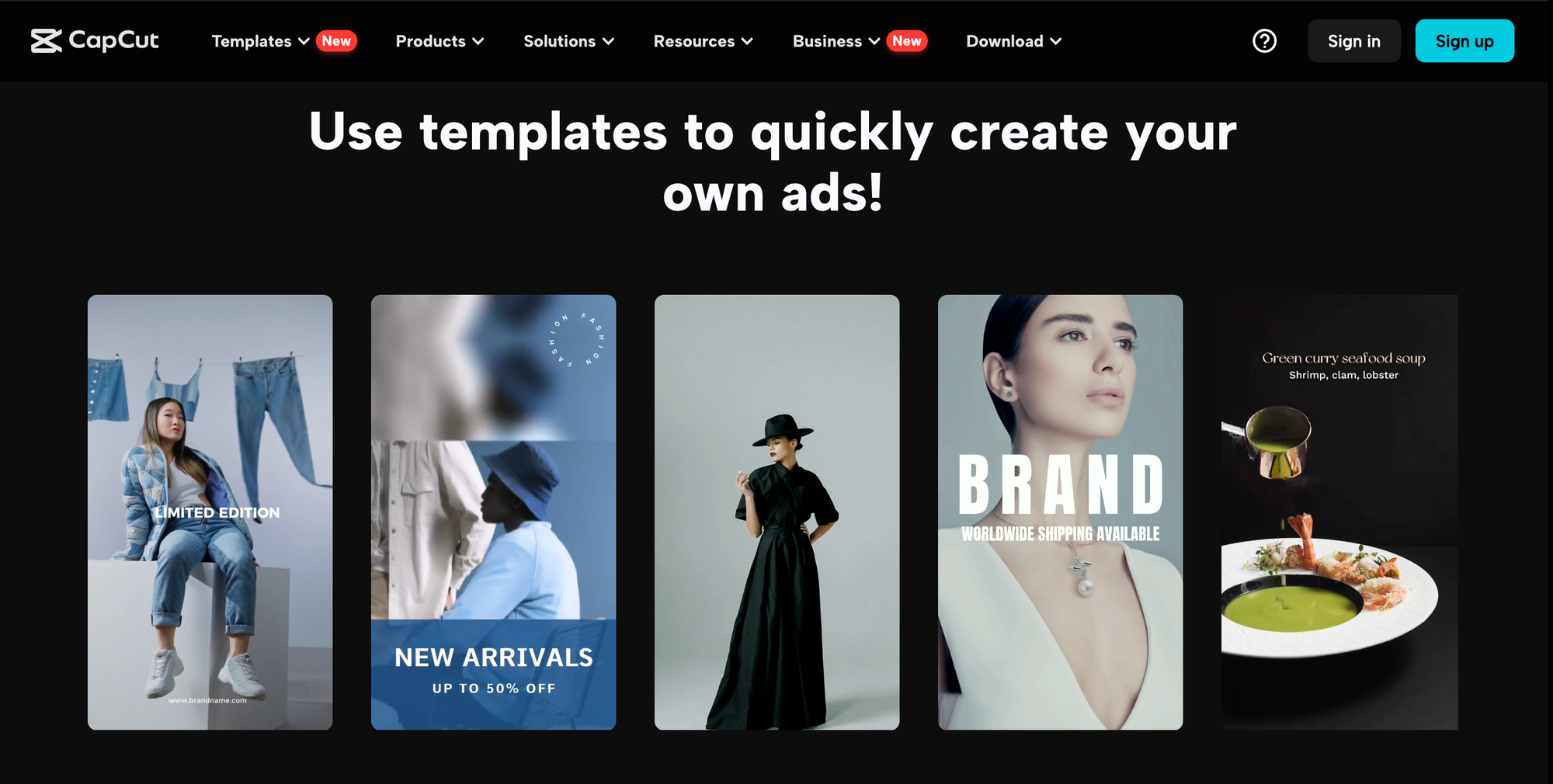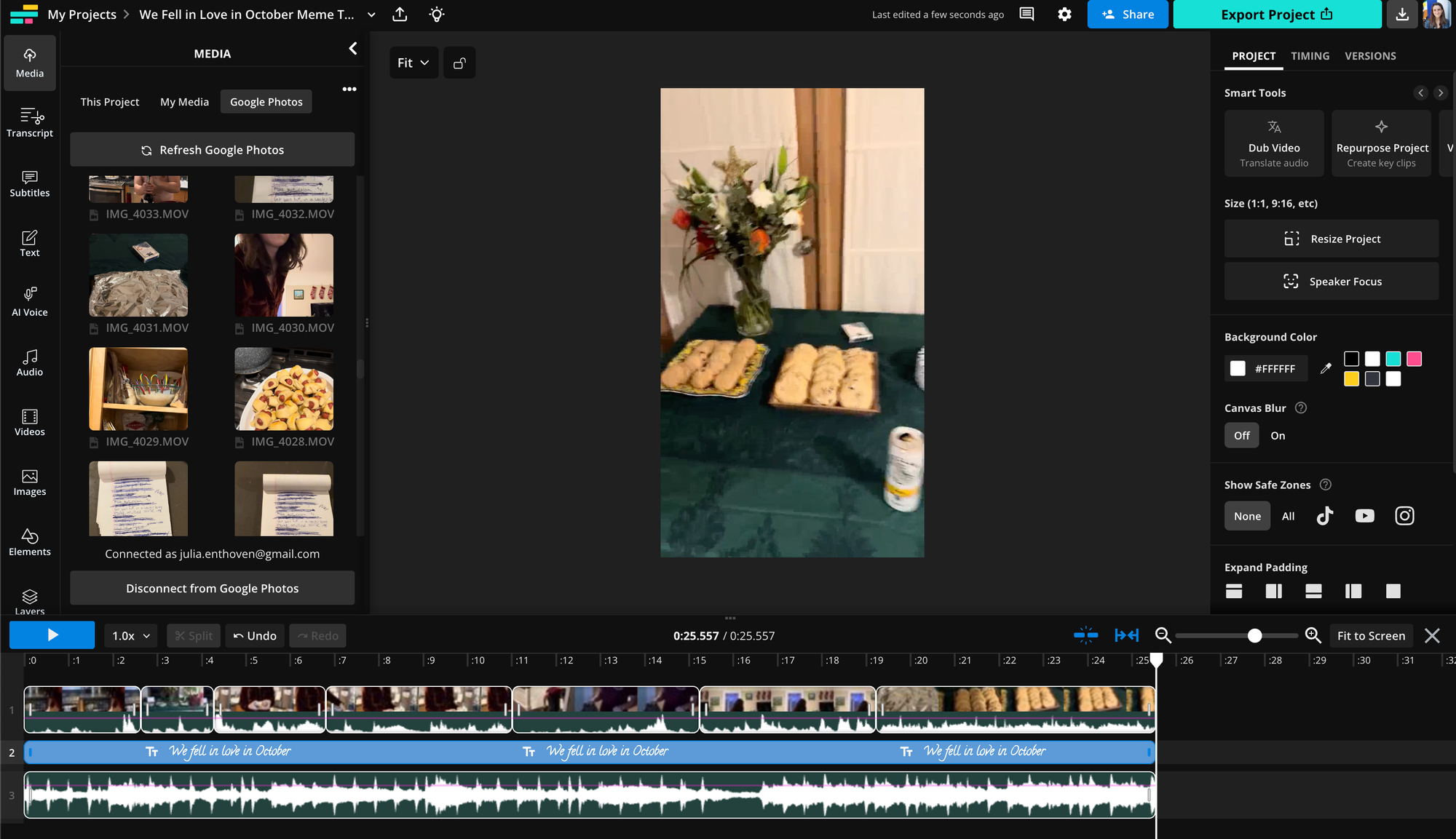What does the TikTok Ban Mean for CapCut and Video Editing?
The TikTok ban passed in April 2024. Courts denied the free speech appeal in December. Will TikTok, CapCut, and Lemon8 be banned on January 19 2025?

On Wednesday December 18, the US Supreme court announced that it would take TikTok's case. TikTok had appealed the decision by a lower federal court upholding PAFACAA, arguing that banning TikTok violates the Constitution's protection of free speech. The Supreme Court will hear arguments from both sides on January 10, 2025.
In April 2024, the US federal government passed a law banning TikTok. The law, known as PAFACAA, takes effect on Jan 19 2025, assuming that the new US President, Donald Trump, chooses to enforce the law as passed and that Bytedance, the TikTok parent company, chooses not to sell TikTok's US property.
It's not clear how this provision - so-called “TikTok ban” - impacts the fate of CapCut, the most popular video editing app in the USA. Many millions of creators rely on CapCut for editing not just TikTok videos but also videos for work, for school, for fun, and for other social media platforms.
This article explains how the Bill, which became law today in the USA, will impact the video editing platform and what it means for creators who rely on Capcut worldwide.
Will TikTok Actually Get Banned in 2025?
The Protecting Americans from Foreign Adversary Controlled Applications Act (PAFACAA) that Biden signed into law on April 2024 takes effect on January 19, 2025. That's 1 days before Donald Trump is inaugurated as the US President, on Jan 20. There are three scenarios under which TikTok will not be banned:
- The US Supreme Court reverses the lower court's decision on free speech grounds: TikTok has appealed to the U.S. Supreme Court, seeking an injunction to block the enforcement of PAFACA on the grounds that it violates the First Amendment by suppressing free speech. On Dec 18, the Supreme Court agreed to hear the expedited case, with oral arguments scheduled for January 10 2025. If the court rules in favor of TikTok, it could overturn the lower court's decision, thereby preventing the ban, on free speech grounds. This legal route hinges on the Court's interpretation of free speech rights versus national security concerns.
- Trump saves TikTok: While laws signed into effect by a sitting president generally remain in force, the enforcement of this law depends on executive action. Trump originally supported the ban on TikTok in 2020, but later expressed the opposite opinion, saying he had a "warm spot in [his] heart" for TikTok. In a recent interview, he did not express a clear position on how he would handle the enforcement of the TikTok ban. However, several people who are in Trump's circle support the ban on TikTok, like Marco Rubio, Trump's nominee for Secretary of State, and Senator Michael Waltz, Trump's incoming national security advisor who voted for the bill this year.
An AI-Generated video of Trump waving his fist at the TikTok logo
- ByteDance sells TikTok: PAFACAA calls on the Chinese parent company, ByteDance, to sell its US property by January 19, 2025, to avoid a ban. A sale to a non-Chinese entity - like SnapChat or Meta - would address national security concerns by removing Chinese government influence over the platform. The buyer does not need to be a US-based corporation, but it must be approved by the POTUS to avoid a ban. In the past, ByteDance has resisted selling TikTok, and any potential sale could be complicated by Chinese export controls that restrict the transfer of certain technologies.
If these scenarios do not unfold, app stores (Apple, Google, and others) operating in the U.S. would be legally required to remove TikTok from their platforms on Jan 19. New downloads of TikTok would immediately stop for U.S.-based users. The app might still function briefly for those who already have it installed, but updates, bug fixes, or new features would cease.
Internet service providers could be directed to block TikTok’s operations in the U.S., which could gradually make the web app inaccessible for existing users.
Approximately 170 million American TikTok users would lose access to the app over time.
Background on CapCut
CapCut is the most popular video editing app in the USA and one of the top 20 most popular apps in the app store. CapCut had reached 200 million monthly active users in March 2023 and has grown since then. Even Joe Biden recently posted a video that appears to come from a CapCut template on Instagram.
CapCut, a property of Chinese company ByteDance, started as a native mobile app in China and gained significant popularity there. In 2018, Bytedance acquired Viamaker and merged it with their internal editor, JianYing. In 2020, Bytedance rebranded JianYing to CapCut and made it available globally. In mid-2021, CapCut became the #1 app in the US app store.
In 2022, CapCut moved to the web so that people can use it on desktop. I’m the cofounder/CEO of Kapwing, another online video editor, so I’ve watched CapCut’s development closely over the years.

On its home page, CapCut describes itself as a "free all-in-one video editor for everyone to create anything anywhere." The app is well-known for offering pre-set templates that correspond to trending videos on TikTok. Available on every platform, creators can leverage these templates to participate in trends and make social media videos more easily.
Implications of the TikTok Law on CapCut
The Protecting Americans from Foreign Adversary Controlled Applications Act (PAFACAA) that Biden signed into law this morning (April 24) defines entities owned by ByteDance, such as CapCut, as "foreign adversary controlled applications.” This means that if the TikTok ban is enacted, CapCut would also face similar restrictions and could potentially be banned in the USA.
There is no definitive word on the fate of CapCut from the US government, federal courts, or Bytedance yet, and legislators have given journalists mixed responses on the scope of the ban. In his opening statement, coauthor Rep. Frank Pallone referred mostly to TikTok, citing the number of users who use “this app.”
“The bill is very targeted and designed to deal with a very particular kind of threat, where the risks are going to be the highest because of the unique combination of national security risks that social media poses,” said an aide for Rep. Mike Gallagher (R-Wis.), a co-author of the bill and chair of the House Select Committee on the Chinese Communist Party, said. This might imply that it only applies to TikTok and ByteDance, both named in the legislation.
However, during the House hearing, Cathay McMorris Rodgers said in her opening statement that other Bytedance apps would be banned also.
“While TikTok may be the most well-known application subject to the Chinese Communist Party (CCP), it is certainly not the only one—others, like Lemon8 and CapCut, are also subject to the CCP’s influence through ByteDance,” said Rodgers.
What is the best alternative to CapCut?
Kapwing is a great video editing alternative to CapCut for creators who want a good solution for adding captions, combining clips together in the timeline, and overlaying popular music soundtracks. From both a phone or computer, you can use Kapwing for word-by-word subtitle animations, which is a common CapCut editing flow. Kapwing also has comparable template library that you can use to find the latest trends and inspiration.

Potential Outcomes of a CapCut Ban
If CapCut is banned in the US, it will become significantly harder to CapCut. It will stop getting updates in the App Store, making it gradually go out of date.
CAPCUT TOO??? LMAO pic.twitter.com/B9ksA3WcXw
— goth jackie spider legs (@MGKSDIABLO) April 24, 2024
Will US users still be able to use CapCut after the ban? One clue comes from TikTok bans in other countries. In June 2020, India banned TikTok, CapCut, and 57 other foreign-owned apps. Indian users can’t find CapCut in the Indian Play Store, but they can still access CapCut by downloading the app's APK file from third-party websites and using a VPN service or sideloading.
It’s likely that if CapCut is banned, more creators will seek out alternative video editors for adding animated captions, browsing sounds, and making templates.
Should the US Ban CapCut?
There are a few different motivations behind the TIkTok bad, some of which apply to CapCut and some which do not:
- Influence from a Foreign Government: Unlike TikTok, CapCut is not a social network or a content consumption platform, so it has less influence on public opinion than TikTok does. Foreign adversaries are less able to “push disinformation and propaganda campaigns…in an attempt to undermine our democracy” through CapCut. However, just having an app with so many active users does give ByteDance a surface to push ads and calls to action, so the risk of influence through CapCut is not trivial.
- Data Privacy: When you download the CapCut app, you give it access to all of your personal photos and videos, meaning it has enormous access to personal data. The mobile app also has access to your location. If legislatures are concerned about Bytedance surveilling US citizens, these data and privacy risks certainly exist within CapCut too.

- Anti-Competitive: Capcut is free and has consistent advertising from within TikTok, which has been extremely hard for US-based video editing companies to compete with. TikTok has been the main source of CapCut’s growth. On the web, Capcut acquires most of their users organically through templates that correspond to TikTok trends and sounds. Because they’re housed under the same roof, Capcut has direct access to data about what’s trending and can publish content to capture that interest. Users can publish directly from CapCut to TikTok, and it’s also embedded within TikTok, so TikTok users are familiar with CapCut’s sound library and interface. Banning CapCut would allow US software companies like Kapwing and Adobe to thrive and grow, recapturing market share.
The Future of CapCut: Will ByteDance Sell It?
The TikTok ban gives Bytedance a year to divest the app, or sell it to a domestic owner. If the bill applies to CapCut, ByteDance may seek to divest it also. Here are some possible US buyers for CapCut:
- Meta: Instagram and Reels have popular embedded video editing tools. However, Meta will already see a large boost in its Reels user base if TikTok is banned and has strong native tools on Instagram. Since the squashed Giphy acquisition, the company been hesitant about making large acquisitions.
- Adobe: Adobe owns Premiere Pro, a heavyweight legacy video editor, and launched Creative Cloud Express with very limited video support last year. CapCut is a productivity tool that many social media teams use to make video, both on native and on the web. Adobe could plausibly make an offer to acquire CapCut to expand Premiere Pro towards native and web.
- Google / YouTube: Google has been surprisingly slow to launch great editing tools. YouTube Create launched on Android only and in limited markets in 2023. It’s possible that YouTube makes a bid to acquire CapCut to supplement it’s web-based, mobile-first productivity tools like Google Docs.
- Whoever buys TikTok: Of course, there are dozens of other players who may make a bid to buy TikTok from Bytedance. Bytedance may bundle CapCut with this deal, as the two are heavily intertwined.
In February 2024, Kelly Zhang stepped down from her role as CEO of Douyin (TikTok's Chinese version) to focus on CapCut. This may signal that Bytedance is separating out TikTok and CapCut in the case that they want to operate (or sell) the two entities separately.

Conclusion
With an enormous user base, CapCut stands to play a major role in defining the future of AI content creation. A ban would have a substantial impact on the video editing market and on professionals like marketers who rely on video for work.
Bytedance is expected to sue and fight the TikTok ban, according to their statements. “Rest assured, we aren’t going anywhere," said TikTok CEO Show Zi Chew in a defiant video posted on Wednesday 4/24.
Our CEO Shou Chew's response to the TikTok ban: pic.twitter.com/l0RAPJMobK
— TikTok Policy (@TikTokPolicy) April 24, 2024
The company owns other popular apps besides TikTok and Capcut: Lemon8, Hypic, Gauph, and SoundOn plus a new Notes app in development. It also has several productivity tools like Lark (akin to Microsoft Office). The legal action in the next few months will inform the future of not just TikTok but all of Bytedance’s apps.
Thanks for reading! Let us know if you have insights, information, or questions about a potential CapCut ban, let us know via Twitter or email. I will keep this article updated as more news comes in.
If you're a creator, come check out Kapwing as a powerful alternative to CapCut, owned fully by a USA company based in San Francisco.






